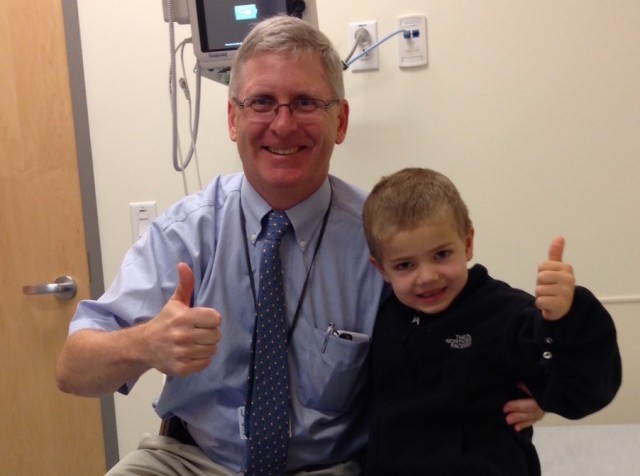In large part because of prodding from Rhett's parents, the district's board at its regular meeting tonight will consider whether to formally endorse a new bill that would abolish the personal belief exemption in California.
Seven-year-old Rhett is going to read a short statement in favor of the proposed bill. He happily read his remarks to me on Monday in a clear, bright voice. "Thank you Reed school board for teaching science and making everyone get vaccinated," he read aloud.
While the overwhelming majority of Marin students are vaccinated, the county's vaccine refusal rate of 6.45 percent is almost triple the statewide average. Pockets of the county have refusal rates that are much higher. Measles is highly contagious, one of the most contagious illnesses known. To achieve herd immunity against measles, vaccine rates must be 92 to 94 percent.
State Senator Richard Pan of Sacramento, who is introducing the bill, plans to attend the district's board meeting.
"I’ll be talking to the board about why it’s important for them to protect children like Rhett in their school district" he said, adding that many adults also have weakened immune systems from cancer treatments or other illnesses and rely on herd immunity for protection.
"I certainly would ask that they support my bill so that we can get our immunization rates up," Pan said.
Many children have completed only some of their vaccines. Across California, this "under-vaccination" is another issue that can allow diseases to spread.
Reed Union's superintendent, Steve Herzog, says school nurses have been working hard since the beginning of the year to get all students up-to-date on their vaccinations. He says all but 24 students out of more than 1,500 in the district have had at least one measles, mumps, rubella vaccine of the two recommended doses. And one dose will protect 95 percent of people.
Herzog says he will recommend tonight that the board formally endorse Pan's bill.
"Any legislation that will support getting more of our people immunized is good," he said.
Herzog says that since measles cases started mounting in early January, he's heard more from parents who support vaccination than from those who do not.
